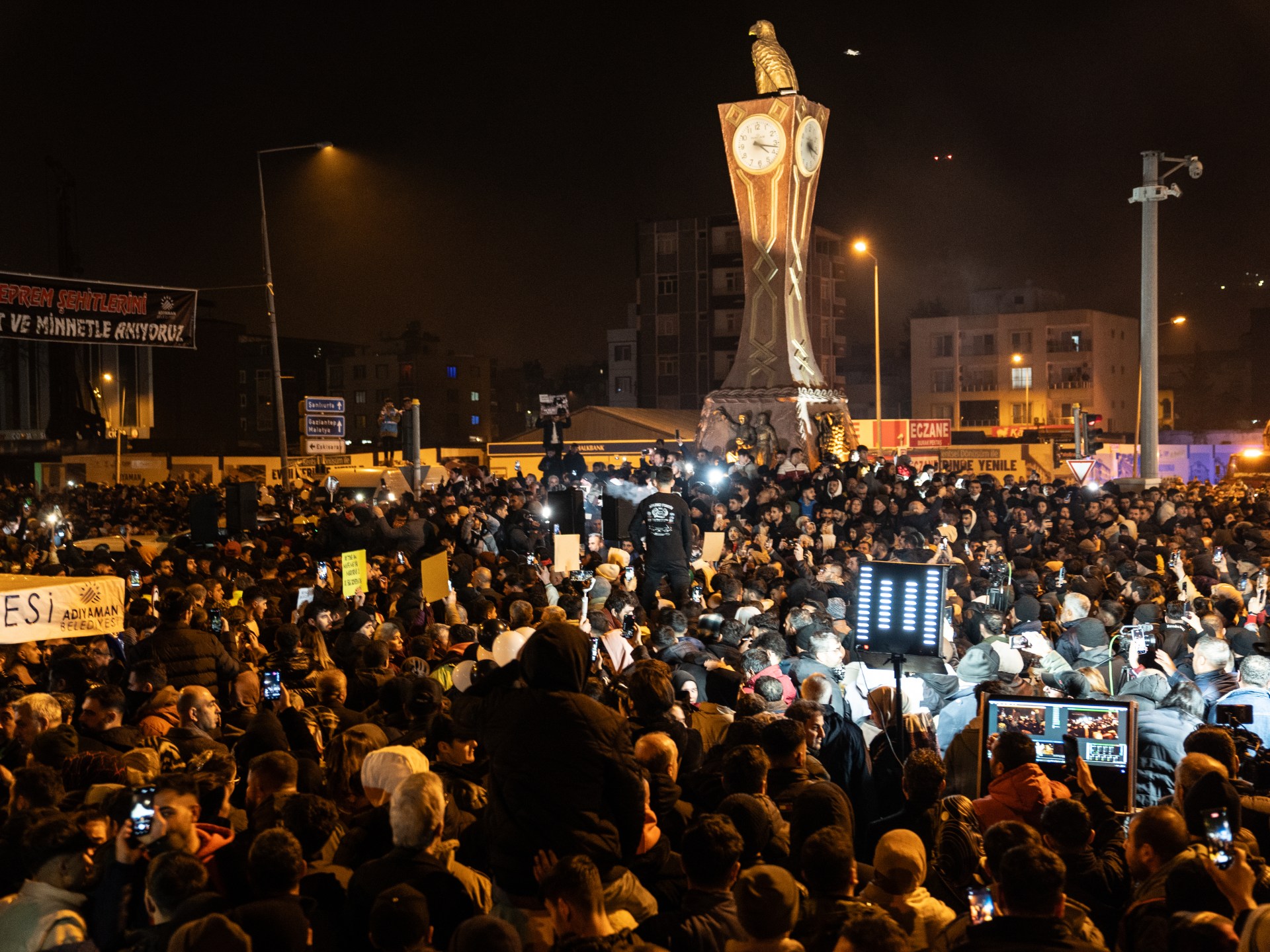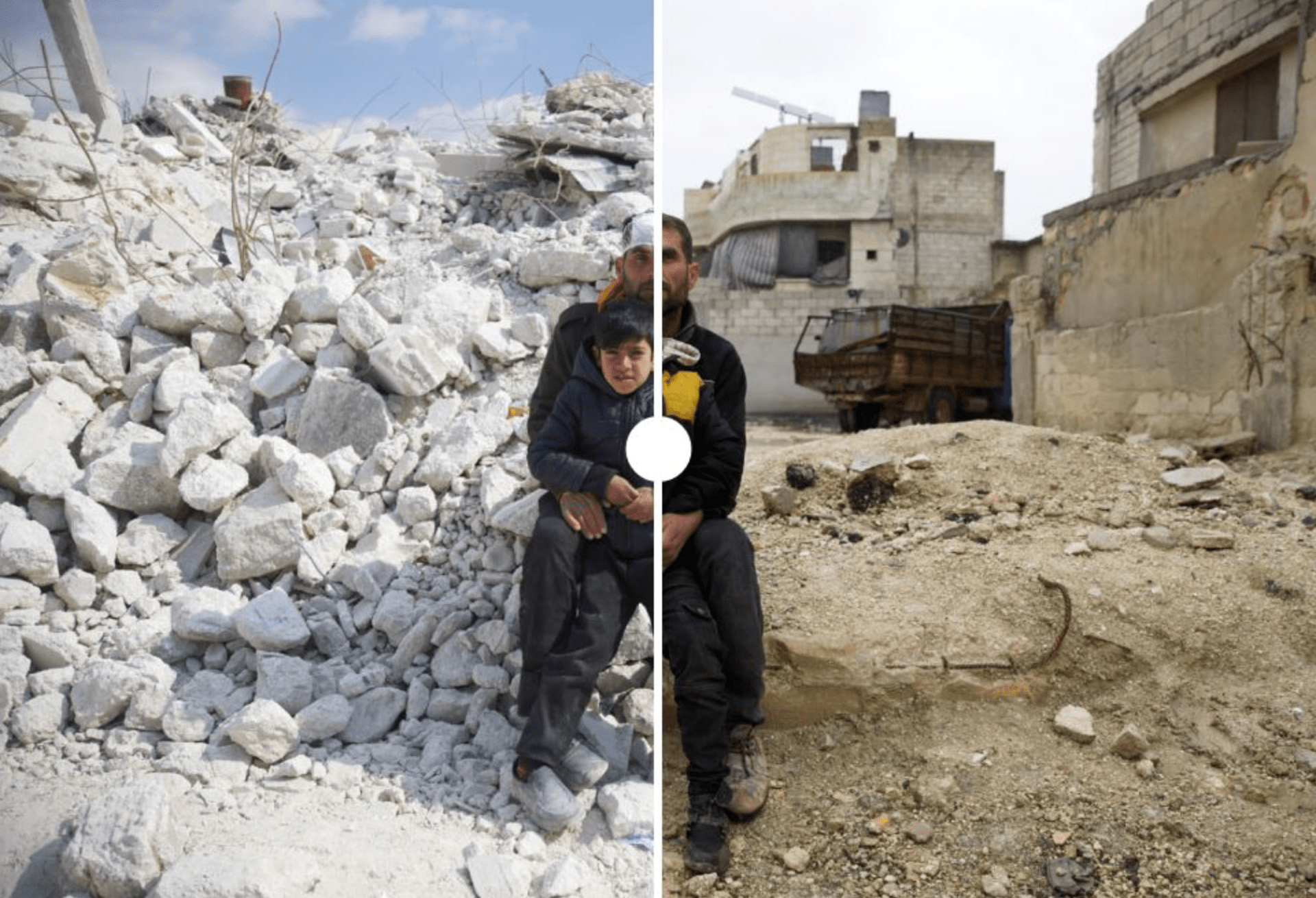Adiyaman, Turkiye – The clock tower standing above the rubble and debris, frozen in time with its watch hands stopped at 4:17am, had become a symbol of Adiyaman’s destruction. But a year later, it is finally ticking again as usual.
On the first anniversary of a double-fold earthquake that killed more than 50,000 people and left three million people displaced in Syria and Turkey, hundreds have gathered beneath Adiyaman’s clock tower – a point of reference for the city – just a few minutes before 4am.
Survivors left flowers and observed a few moments of silence to mourn Adiyaman’s 8,387 victims, making it the third most affected province in Turkey after Hatay and Kahramanmaras.
After an early morning spent sitting around fires warming up this cold day and recalling their traumatic memories from last year, at 7am attendees headed together to plant 100 trees, a symbol of rebirth after so much death and destruction. “We thought it was important to honour our dead, but also celebrate all those who’ve given their helping hands over the past year,” says Berfin Kilic, a native of Sanliurfa, another province of the earthquake zone.
Kilic decided to move to Adiyaman a year ago to help. As her city was spared major destruction, unlike elsewhere in the region, she started volunteering for Dayanisma Insanlari, a civil society organisation coordinating humanitarian aid cooperation in the disaster area, including food distribution to survivors in tented settlements.
She and a few other volunteers helped organise this commemoration, followed by a distribution of warm meals to survivors across the city, just like they did a year ago today.
“Even though we have lived through a year that included pain, loss and solidarity, we have seen that we grow stronger together and give hope to each other,” says Mehmet Yilmaz, another volunteer, as he helps distribute the meals.
Nejla Arslan, 30, a geography teacher and one of Adiyaman’s survivors, explains she immediately escaped the city on the morning of February 6 and found refuge at her brother’s apartment in Ankara, the capital.
“I still try to be far from my city as much as possible,” she says, adding that she only returned for a few days just in time for the memorial function.
Kilic says that the tragedy sparked widespread solidarity across Adiyaman, where rescue and aid came slower than in other areas, pushing locals to support each other as they could through grassroots citizen initiatives like Dayanisma Insanlari.
“That gives me hope,” Kilic says smiling, as still a year later thousands of people in this Kurdish-majority city are living in temporary shelters, making them reliant on the kindness of others.
#Flowers #tears #tree #planting #Adiyaman #remember #Turkeys #earthquake #TurkeySyria #Earthquake



